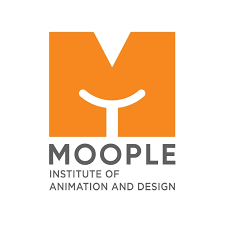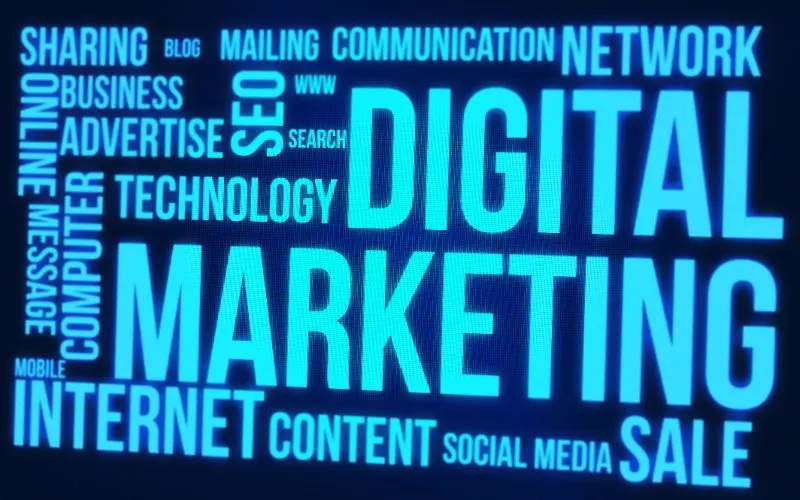In a world where every scroll, search, and click holds meaning, digital marketing has become the backbone of modern business strategy. But as someone eager to break into or level up in this field, you’re probably staring at too many options. Do you go for the all-round digital marketing course or zero in on one area with a specialised course, like an SEO full course or Google Ads? It’s a real dilemma.
There’s no one-size-fits-all answer. The right path depends on your current skills, career aspirations, the time and budget you can commit, and how you like to learn. Let’s walk through both options, unpack the benefits and drawbacks, and give you a practical way to decide.
Understanding the Basics
Let’s take a step back. Either way you go, broad or deep, you’re jumping into a fast-moving field. Every day brings algorithm updates, new platforms, shifting consumer behaviours, and fresh technology. It’s exciting, but also means you should pick a learning path that matches your endurance and appetite for change.
Digital marketing isn’t a simple line to walk. It’s a spectrum. On one end, some generalists understand everything from SEO and blogging to paid campaigns and conversion funnels. On the other hand, specialists sink deep into one domain, mastering its nuances. Neither choice is inherently better. It all depends on what you want your professional life to look like.
The Case for a Digital Marketing Certification Course
A traditional digital marketing certification course is structured to offer a comprehensive overview of the key pillars that make up the discipline. These typically include:
- SEO (Search Engine Optimisation)
- Content Marketing
- Social Media Marketing (think platforms like Facebook, Instagram, LinkedIn)
- Google Ads (search, display, video)
- Email Marketing
- Analytics and Reporting
- Campaign Strategy
In 12 weeks, you won’t become an expert, but you will have a strong grasp of how each component interacts, why it matters, and how each one functions.
Benefits of Going Broad
Considering an all-rounder path? This is what it offers.
- Comprehensive Perspective: From a comprehensive standpoint, you will discover how many strategies — such as content marketing and social media ads — work in concert. In real-world marketing, when tactics collide, that is really essential.
- Career Flexibility: Flexibility in your career might allow you to join agencies or companies in entry-level positions.
- Better Decision-Making: Knowing the principles of every field will help you decide where to focus or turn as your career develops.
- Integrated Projects: Quality certification programmes usually include real-world projects, creating campaigns, managing budgets, and tracking results. These give you material to review later or showcase to employers.
Downsides to Know
But going broad isn’t always a smooth ride; here are a few trade-offs to consider.
- Shallow Depth: You will not go far into any one field, just enough to be proficient.
- Time Investment: Usually spanning twelve weeks or more, these programs
- Surface-Level Learning: Some courses may seem theoretical without the chance to engage oneself.
Why Choose Individual Specialisations?
From day one, you could go further rather than just a general overview. For instance, you are in a social media marketing school focused on Facebook, Instagram, and TikTok content and ad strategy. Alternatively, you commit to studying everything from keyword research to technical SEO audits and backlink development from an SEO comprehensive course. Others jump straight into Google Ads training, learning to conduct A/B tests, control budgets, improve ads and interpret performance statistics.
Advantages of Specialising Early
If focus is your game plan, these perks make the case.
- In-Depth Skills: You will become rather strong in a given topic, which might lead to a specialist position such as Paid Ads Specialist or SEO Manager.
- Higher Earning Potential: Increased income. Particularly if your position fits the talent gap the company wants filled, specialists are paid more than generalists.
- Quick Entry Point: Many speciality courses last four to six weeks. They let you start generating outcomes sooner and scale up quicker.
- Freelance Opportunities: Building a solid portfolio in one field can help you establish yourself as “the go-to” expert with better rates and clearer positioning.
Potential Drawbacks
Before you commit too fast, keep these cautions in mind.
- Restricted Foundation: Knowing how several sectors interact might cause you to overlook the overall strategic view.
- Early Commitment: Before thoroughly investigating others, you likely dedicate yourself to one discipline and later discover that it does not align with your core interest.
- Regular Updates Required: Every sphere changes quickly. You must keep current, particularly in fields like SEO or ads, where algorithm changes affect everything.
How to Decide Between a Certification and a Specialisation
Let’s get pragmatic.
1. Beginner? Start broad.
Aim for a full digital marketing certification course if you’re new to digital marketing. It sets the foundation while giving you context.
2. Already Have Base Skills?
If you’ve done some projects or have experience, consider specialising in one area (SEO, social media, or Google Ads) based on your interests and the job market.
3. Career Goals
Want to become a brand or agency marketer in a broader role? Go broad first.
Want to launch as an SEO freelancer? Specialise now.
4. Time & Budget
If you have three months and want a professional certification, go broad. If you’ve got a month and want job-ready skills in Google Ads, specialise.
5. Flexibility & Learning Style
Think about how you like to learn. Thorough, syllabus-based programmes often work best in broad courses. Specialists can be highly self-paced with immediate application.
Pro tip: In both paths, practical, hands-on experience is non-negotiable. Learning is not enough; you must apply.
Combining Approaches: The Hybrid Path
It’s worth noting. You don’t need to pick one forever. Many successful professionals start with a certification, discover a passion for one component (say, SEO), and then take a deep dive with an SEO full course. Others might go the opposite way, starting with an ad campaign project and later pursuing a certificate to position themselves as senior strategists.
A hybrid strategy could look like this:
- Complete a two-month digital marketing certification.
- Choose an area you enjoy, for example, paid advertising, and follow up with a Google Ads course.
- Build hands-on projects or campaigns for your portfolio.
- Later, if interest sparks, explore another discipline like email marketing or analytics.
This route gives you both breadth and depth and keeps you market resilient.
Real Career Scenarios
1. Arjun just graduated and wants to enter marketing. “I have no clue where to start.”
A digital marketing certification is his best first step. It teaches him campaign planning, content, SEO basics, and social ads, all in one place. Later, he can specialise based on what he enjoys.
2. Prdeep is already an SEO assistant at a small agency. He wants to get promoted.
The next logical step is a deep-dive SEO course and a Google Ads course to round out his SEM credentials. No need for a full certification.
3. Phoebe freelances part-time as a content and social media creator.
A niche social media marketing course will help her refine strategy and analytics to market her services more confidently and charge more.
Why You Should Choose Moople Academy for Digital Marketing Training
Picking the correct path is about clarity, not just a job change. At Moople Academy, we equip you for the actual demands of the digital marketing realm, not just impart knowledge. Whether your starting point is from nothing or you are upskilling with a specific objective in mind, we assist in your learning what counts.
Moople might be the ideal study buddy for your trip for the following reasons:
- Industry-Relevant Curriculum: Those who have been in the industry – marketers – design our courses. We provide what the market needs, from SEO and Google Ads to analytics and branding.
- Hands-on Projects: Our students work on realistic campaigns, ad accounts, and actual SEO audits – beyond theoretical presentations.
- Career Help: We don’t let you hang after the course. Resume aid, practice interviews, job leads; we assist you in acquiring your first (or next) job.
The Takeaway
Look, digital marketing isn’t one-size-fits-all. It’s more like a buffet, and it pays to sample everything before deciding what you want on your plate. Here’s a simple way to look at it:
- If you’re early in your career or confused about where to start, go with a digital marketing certification course.
- If you already know where you want to focus, skip the broad path and take a niche SEO full course, a social media marketing course, or a Google Ads course.
- If you’re unsure which option to choose, get a basic certification and then go for specialisation.
FAQs
Can I do a full certification and then a specialist course right after?
Yes. That’s often the smartest route. The certification gives you context, and the specialised course gives you focus and depth.
Which specialisation is most in demand right now?
SEO and Google Ads have steady demand in most markets. Social media, which includes platforms like TikTok, LinkedIn, and YouTube, is also rapidly growing. Choose based on what you enjoy, but these three areas offer rich opportunities.
How much real-world experience do I need to land a job after a certification?
Employers look for portfolio work, including campaign examples, blog posts, social media ads, and analytics reports. Even a personal or mock project counts if it shows results.
Are free courses worth it compared to paid certifications or specialisations?
Free courses, like Google’s Skillshop or HubSpot Academy, are great for exposure. However, they may lack depth, mentorship, or updated content. Paid programs offer structure, peer engagement, and feedback, which can accelerate learning.

